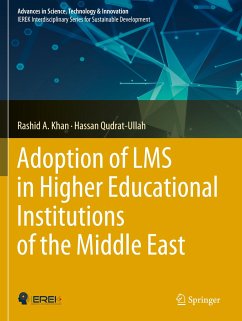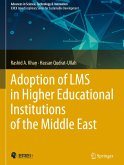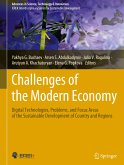This book discusses the adoption of learning management systems (LMS) in higher education institutions. It presents influential predictors that may impact instructors' behavioral intention to adopt learning management systems in the context of Arab culture, as well as a unique model of technology acceptance that draws on and combines previous technology adoption models (i.e., a modified unified theory of acceptance and use of technology model - UTAUT2). Moreover, this study extends the UTAUT2 model by including Hofstede's (1980) cultural dimensions, and technology awareness as the moderators of the model. It also describes the explanatory technique approach used to collect quantitative data from the instructors at higher education institutions in Saudi Arabia and were analyzed with structural equation modeling using SPSS/Amos software. The findings revealed that facilitating conditions were the strongest predictor of behavioral intention to adopt an LMS, followed by performance expectancy and hedonic motivation, technology awareness, and cultural dimensions exerted a moderating influence on instructors' behavioral intention to use LMS in their teaching.
By including new constructs, this becomes the first study of its kind exploring instructors' use of LMS in Higher Educational Institutions of Saudi Arabia and other countries of the Middle East. It offers practical insights for a broad range of researchers and professionals at higher education institutions and serves as a reference guide for designers of learning management systems (e.g., blackboard systems), policymakers, and the Ministry of Education staff.
By including new constructs, this becomes the first study of its kind exploring instructors' use of LMS in Higher Educational Institutions of Saudi Arabia and other countries of the Middle East. It offers practical insights for a broad range of researchers and professionals at higher education institutions and serves as a reference guide for designers of learning management systems (e.g., blackboard systems), policymakers, and the Ministry of Education staff.








